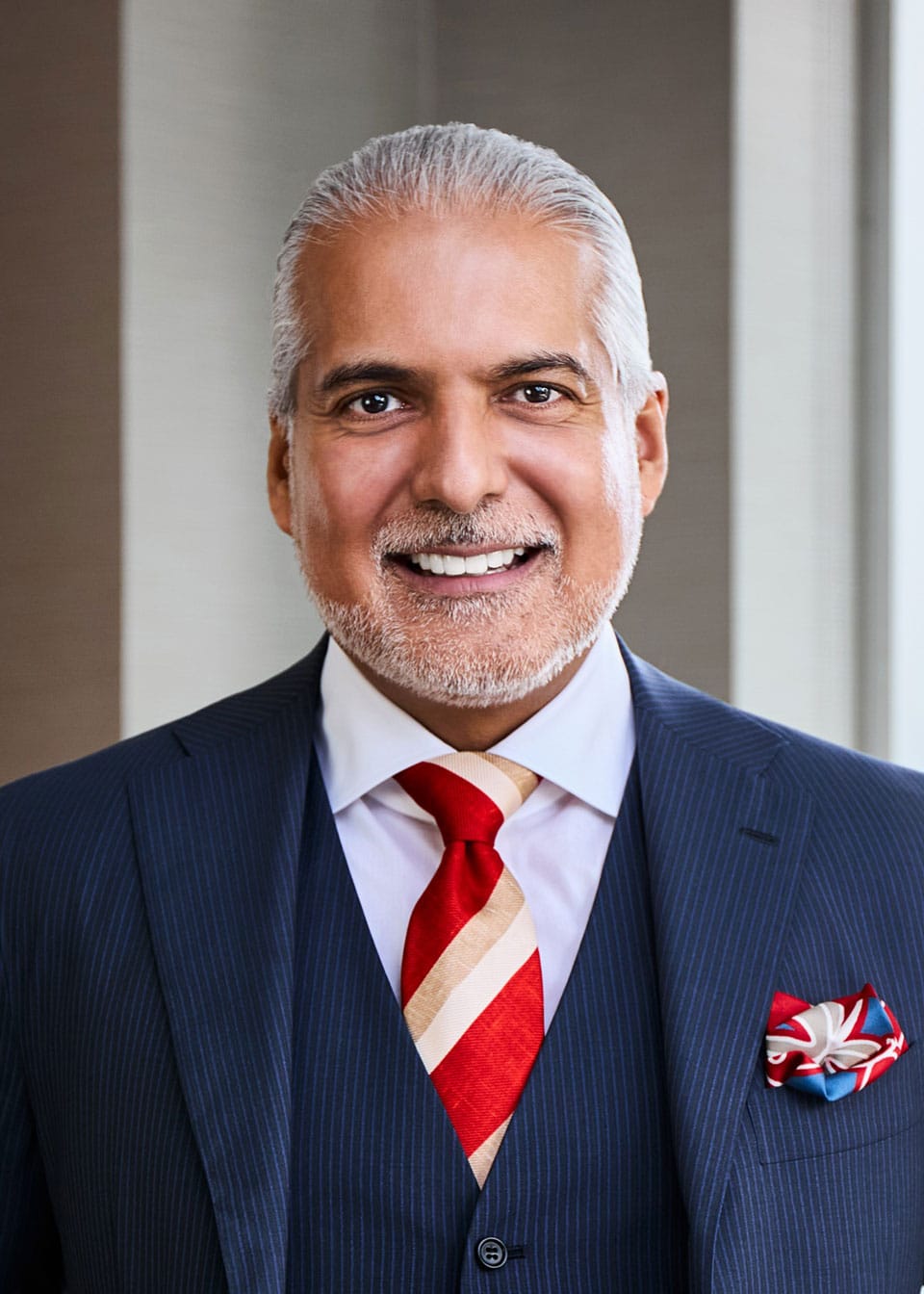CEO Spotlight: Investor Arif Bhalwani Harnesses Alternative Capital to Grow Companies, Create Prosperity

Arif Bhalwani, a leading Canadian investor and entrepreneur, is CEO of Third Eye Capital, an alternative capital provider which he co-founded in Toronto in 2005. In this interview with the CEOWORLD Magazine, he reflects on the Canadian business lending market, his career path and shares his insights about achieving success and overcoming adversity.
Q: You’ve said that a company’s most valuable assets often do not appear on a balance sheet. What do you mean by that?
Arif Bhalwani: The world is transitioning to a knowledge-based economy and corporate value and growth are increasingly driven by intellectual property assets like patents, brands, access rights, databases, customer loyalty, and unique business processes, all of which cannot be easily discerned on a financial statement. Accounting conventions require that companies expense the investments made to create such assets. Even when a company acquires intellectual property, whether directly or as a result of a merger, the accounting system plugs much of this value in broad categories of “intangibles” and “goodwill,” neither of which provide investors and analysts with quality data to make informed investment decisions.
Tangible and physical capital (like factories, machines, or inventory) which does appear on a balance sheet is just an enabler – a commodity, equally available to all competitors and hence a marginal creator of value and competitive advantage. It’s the invisible, intellectual property assets that are truly strategic and at the heart of a company’s competitiveness and resilience.
Intangible assets have grown in importance throughout time, accounting for 5% in 1978 and now accounting for 80% of the total enterprise value of U.S. publicly-listed companies. Yet these assets are not recognized on financial statements and therefore overlooked by banks when determining a company’s future performance. Our extensive experience in lending to technology and healthcare companies has given us unique insights into which intellectual property has known market demand or predictable cash flows, and then how to isolate such assets as relevant collateral for financing. With companies becoming leaner, less capital intensive, and more innovation-based, intellectual property lending will inevitably have to increase because these invisible assets will be the only collateral available.
Q: How does Third Eye Capital fill a gap in the market by helping companies undergoing transitions access alternative sources of capital?
Arif Bhalwani: The Canadian lending markets are controlled by an oligopoly of banks: the six largest Canadian banks are the largest players in the Canadian financial landscape and hold approximately 75% market share in consumer and retail banking (which includes small business loans and commercial lending) and dominant positions in wholesale banking (dealing with corporate and institutional clients) and wealth management, where market share is about 80%. Banks have shown a willingness to price business loans aggressively for certain borrowers, specifically where they can generate non-interest income from sources such as account fees, cash-management support, foreign exchange services, payroll solutions, group savings plans, insurance products, and wealth management services to business owners. Their full-service capabilities have allowed the big six banks to capture more market share in business lending than their competitors, including other chartered banks, trust companies, credit unions, mortgage companies, and other non-bank lenders combined.
However, loans represent a smaller proportion of banks’ assets today than in any time during the 20th century. Higher regulatory capital requirements and lower net interest margins has made lending an unattractive high risk, low return proposition for banks. Therefore, companies that are undergoing change, distress, transition or other type of challenge, are considered to be too risky by banks and will have difficulty raising financing.
Third Eye Capital (TEC) specializes in financing companies that are in complex or idiosyncratic situations and fall outside of the mandate of traditional lenders in Canada. We have a lot of experience in solving difficult business problems in diverse industries and can provide financing in challenging or even contentious situations. We possess core skills in distressed investing and business turnarounds cultivated through our team’s multi-year, multi-cycle hands-on experience. Company management teams rely on us to add value, roll-up our sleeves, and work side-by-side with them to achieve mutually rewarding investment outcomes through both good and bad times. This commitment has resulted in the vast majority of our new investments being the result of referrals from successful relationships with previous management teams and their advisors.
Q: You’ve described how in your own early business career you experienced obstacles to financing. What lessons did you take away from that?
Arif Bhalwani: I was forced to be a self-starter from a very young age and would imagine the different businesses that I could create to help my family. I think my entrepreneurial backbone was formed from watching my family run their own businesses, particularly after we came to Canada as penniless refugees where my parents’ educational and job qualifications were not recognized. Canada granted us asylum after we were expelled from Uganda and my family felt it was unethical to take advantage of the country’s welfare system so we took on any jobs available – I was delivering newspapers, mowing lawns, and shoveling driveways when I was very young. It was all about survival.
In my teens, I got my first hint of the success I could achieve with relentless work and single-minded belief when I helped start, build and eventually sell a personal computer services company. By the time I was in my mid-20s, I had helped found and manage eight different businesses. I financed these ventures through an amalgamation of funds collected from members of my extended family who were also refugees from Uganda, as well as from the profits of businesses that were successful. I was never able to get bank loans or other outside financing, so had to rely on frugality, ingenuity, determination, and a lot of hard work. Not every business was a success and it was the failures that taught me humility and really ingrained my survival mentality.
Perhaps due to my perilous upbringing and need to be self-reliant, I have felt constantly paranoid about failing. Even today, in running a multi-billion dollar financing company, I manage the business as if it could all be gone in an instant. Luck does play a role in success and I can’t be complacent that past performance will translate into future good fortune.
This is what inspired me to eventually start companies that provide capital and guidance to other entrepreneurs facing challenges in building their businesses. My struggles have shaped me, and in my role today I am able to help unloved and misunderstood companies overcome their adversities. I was fortunate to find a mentor to guide me as my businesses grew, and today I can do the same for others through lessons of resilience, stability, and survival.
Q: What motivated you to start the Bhalwani Family Charitable Foundation?
Arif Bhalwani: When Canada welcomed me and my family with open arms, we pledged to return this life saving generosity by promising to meaningfully contribute to society so that the lives of all Canadians would improve. I am forever indebted to Canada and am obligated to help make our country, our people better.
So, I come from an upbringing and a community that not only encourages philanthropy but makes service to humanity a core value. And when you are fortunate enough to have achieved financial success because a nation took a chance on you, I believe it is incumbent upon you to spend your resources to assist society in the nation.
My wife, an immigrant from Argentina, and I set up the Bhalwani Family Charitable Foundation about six years ago to better target our family’s philanthropic endeavours. We concentrate our giving in Canada and hope that we can be citizens of pride for a nation that saved us.
Q: What are some of the ways you “think outside the box” to bring transformational change to the financial services industry?
Arif Bhalwani: My path to leading a top investment firm was unconventional to say the least. I got a full scholarship to university but dropped out to pursue my entrepreneurial passions. When I co-founded a venture capital firm, I had no university degree, no financing experience, no office, and no clients. I just approached this new firm with the same unflagging persistence and enduring passion I had with every other business I started. It was after the venture firm was already successful that I decided to get an MBA, take some post-grad courses at Harvard, and obtain the Chartered Financial Analyst designation. My love of business has been steady and ardent, and the continuous learning and challenge is more gratifying than the achievement.
I approach the financial services industry the same unconventional way. We finance businesses that most other lenders, especially banks, consider “unfinanceable” and which our competitors don’t know about, think about, or care about. We don’t follow fads or crowds and look for opportunities in places other investors hesitate to go. If you’re going to generate unconventional results, you have to necessarily do what others are not.
This doesn’t simply mean taking the opposite view of others. Just because banks don’t finance cryptocurrency companies, for example, doesn’t mean we should. We need to dig deep – excavate the reasons for a company’s performance – and look beyond the numbers to form insights into what could go wrong and which latent threats would cause us to avoid challenging the consensus. For the record, we have never financed a bitcoin exchange, miner or similar cryptocurrency company – there are too many things that could go wrong.
Departing from consensus can be uncomfortable and painful. But you have to be comfortable being uncomfortable to succeed. I have suffered many setbacks in my life and have learned that the road to success is going to be filled with obstacles and detours. The resolve to overcome and the resilience to keep going are how we achieve our goals. Too many investors are afraid of being wrong and bail on their convictions at the first sign of trouble. I accept we may not always be right in our investment decisions but we won’t let our mistakes wipe us out or force us to give up.
Q: What do you have planned for the future with Third Eye Capital?
Arif Bhalwani: Third Eye Capital has been around for nearly two decades, but we’re still a young company when compared to the massive market opportunity. We have two types of clients: our investors, who entrust us with managing their capital and generating attractive returns; and our portfolio companies, who rely on us for capital and guidance to solve their business problems.
Investors need to navigate a much trickier investing environment characterized by higher rates, lower returns, and tighter correlations. Our investment strategy provides collateral-based cash flows, lower duration, and true diversifying attributes that are attractive in the new investment regime. Alternative credit will be a core component of fixed income allocations because it provides investors higher potential returns with a higher margin of safety.
Meanwhile, with the cost of capital going up and the risks impacting businesses becoming more difficult to manage, access to financing will be restricted and sometimes not available at all for certain kinds of companies. Canadian companies will increasingly seek out alternative capital providers like us that have the experience helping companies navigate tough challenges and survive adversity. Non-bank lenders such as private funds and institutional investors account for 75% of the credit markets in the U.S. In Canada, banks have a 75% share, so the growth opportunities for alternative capital providers like Third Eye Capital are extraordinary.
We plan to expand our capital base to investors outside Canada in order to scale capacity to meet the growing demand for financing from companies that are underserved and overlooked by banks and other traditional sources of capital. Our goal is to be the place that Canadian companies go when the banks say no.
Have you read?
Pinduoduo Inc Changes Name to PDD Holdings Inc.
Truth Coaching with Randy Howell Jr. Has the Power to Heal.
Advice for M&A success in 2023 by Josh Rogers.
Ever Heard of ChatGPT for Executives? Better Update Your Resume by Rick Andrade.
5 Opportunities Every Leaders Should Be Embracing in 2023 by Gordon Tredgold.
The Future of Work: Going Beyond the Surface Level Issues by Joshua Berry.
Add CEOWORLD magazine to your Google News feed.
Follow CEOWORLD magazine headlines on: Google News, LinkedIn, Twitter, and Facebook.
Copyright 2024 The CEOWORLD magazine. All rights reserved. This material (and any extract from it) must not be copied, redistributed or placed on any website, without CEOWORLD magazine' prior written consent. For media queries, please contact: info@ceoworld.biz








